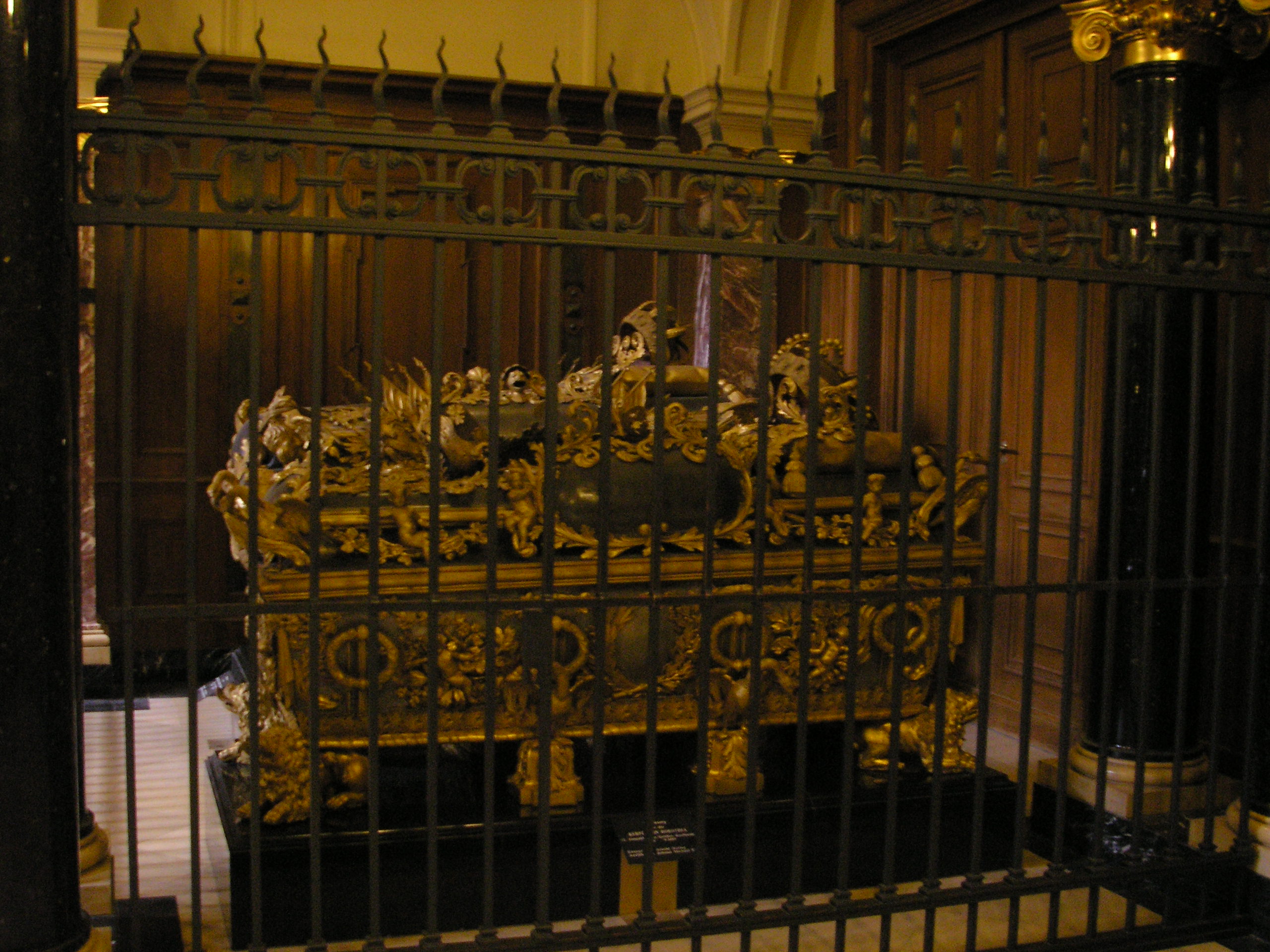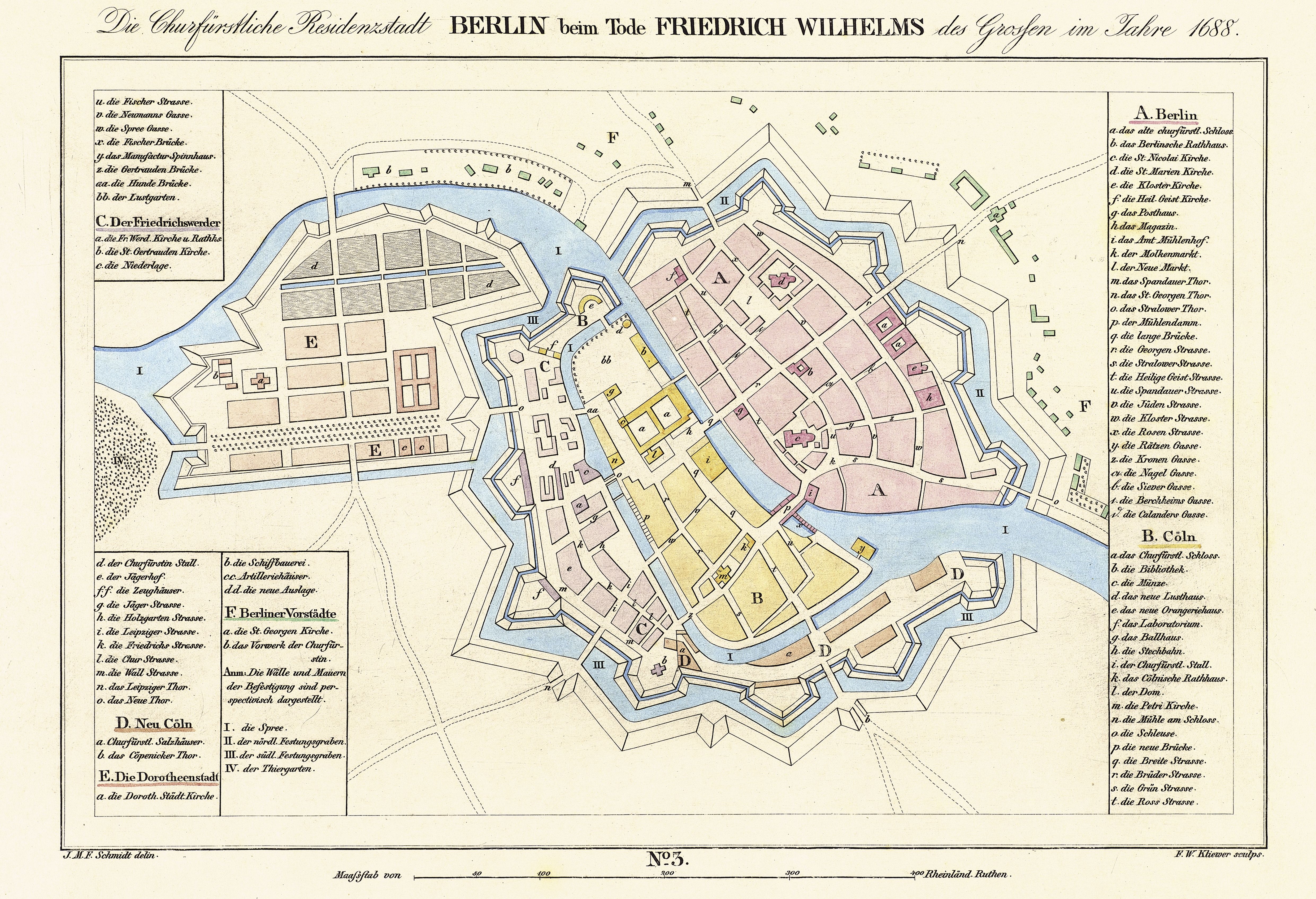Princess Dorothea Sophie Of Schleswig Holstein Sonderburg Glucksburg
Encyclopedia, Science News & Research Reviews
Reference Source: Wikipedia, The Free Encyclopedia
Introduction
Princess Dorothea of Schleswig-Holstein-Sonderburg-Glücksburg (September 28, 1636 - August 6, 1689) became Duke of Brunswick-Lüneburg by marriage to Christian Louis, Duke of Braunschweig-Lüneburg. She was the Elector of Brandenburg through her marriage to Elector Frederick Wilhelm. "Great Elector" of Brandenburg.
Scholarly Articles
Biography
Dorothea was born in Glucksburg and raised at Glucksburg Castle. She could claim her royal blood by descending from her great-grandfather, King Christian III of Denmark, but her parents were Schleswig-Holstein-Sonderburg-Glück. They were two men of low status: Philip, Duke of Suburg and Sophia Hedwig, Duke of Saxe-Lauenburg. She was the sister of Auguste, Duke of Schleswig-Holstein-Sonderburg-Glücksburg, Duchess Augustenborg (named after her).
= Duchess of Brunswick-Lüneburg =
In 1653, Dorothea married Christian Louis, Duke of Brunswick-Lüneburg, brother-in-law of Frederick III of Denmark. They lived in Celle Castle. Her husband was thought to be short-tempered and a heavy drinker. There were no children in the marriage. In 1665 her first spouse died and she moved to Herzberg Castle as her widow's seat, while her brother-in-law George William followed him as Duke of Lüneburg of Celle.
= Electress of Brandenburg =
On June 14, 1668, at the age of 31, she married again, this time to the widowed Elector Frederick Wilhelm of Brandenburg, with whom she had seven children. Out of love for her second husband, she switched her denomination from Lutheran to Calvinist. Asked about her religious beliefs by the Prussian (Lutheran) estates, she presented them with her detailed "Confession of Faith" in early 1669, which began with the sentence: . Luther, Zwingli, Beza and Calvin wrote (...). ” She bravely advocated her religious tolerance. "(I) leave freedom of conscience to everyone (...)" Dorothea was a confident, courageous and enterprising woman. She accompanied her husband on all his expeditions, slept with him on the battlefields, and had a great influence on his politics as his equal. He discussed with her all his plans regarding her state. In that respect she resembled his first wife Louise Henriette of Nassau. To ensure the financial support of her four sons while her son from her first marriage, King Frederick I of Prussia, succeeded to the throne, she acquired the fief of Brandenburg-Schvedt in 1670. purchased and expanded it in 1670 with the estate of Wildenbruch. 1680. She also had both the castles of Schwedt and Wildenbruch rebuilt after efforts to economically revitalize these vast estates. In 1670, she also received land outside the gates of the then cities of Berlin and Cologne as a gift from her husband. From 1674, a new suburb was planned there, later named Drosenstadt after her. She subdivided the property and rented it out, making a large profit from the building site. Dorothea is said to have planted her first tree in a new boulevard called Linden in 1680. This boulevard was a boulevard lined with linden trees in her settlement, which became a kind of artificial island by digging small canals that complemented the Baroque city fortifications. Berlin Fortress). This tree-lined avenue later became Berlin's great boulevard. After the Edict of Potsdam, Huguenots and others settled in Drozenstadt. She established a shipyard and a paper mill. In 1673, the Elector acquired for her the small Caputo Palace near Potsdam, and she enlarged her country mansion and equipped it as her pleasure palace. Today, it is home to the Museum of the Prussian Palace and Garden Foundation Berlin Her Brandenburg, whose exhibitions provide information about Dorothea's life and her works. Although she herself preferred to live in this small palace, she built a very representative palace complex in Shvet for her sons. In 1676 she became commander of her own regiment, in 1678 and in 1692 she equipped her two fleets in Brandenburg. In 1684, Fort Dorothea was named after her. This was her second fort in her Coast Colony of Brandenburg Gold in present-day southwestern Ghana, after Fort Fredericksburg acquired by her husband. Suspicions that Dorothea worked to divide Brandenburg-Prussia in order to secure income for her sons, or to unite their provinces for her sons. Although this is believed to be denied by historiography, her reputation was tarnished for a long time. This negative perception is due to the fact that some publicists did not base their critical judgments of Dorothea on primary sources, but primarily on her posthumous publications, especially those by Karl Ludwig von Pernitz. It is based on the fact that it is based on a centuries-old legend. After her death, the false impression was given that she wanted to make an agreement with France and accepted the partition of the country, thus casting doubt on Prussia becoming a great power. However, there is no doubt that her elector's eldest son and successor, Frederick I of Prussia, had at least a corresponding fear of his stepmother. Her stepmother survived her husband by a year, and she died in the spa town of Karlsbad in the then Kingdom of Bohemia. She is buried in the Berlin Cathedral.
Issue
In her second marriage, Dorothea had the following children: Philip William (1669–1711) Marie Amalie (1670–1739) married: Karl von Mecklenburg-Güstrow, son of Gustav Adolf, Duke of Mecklenburg-Güstrow Maurice William, Duke of Saxe-Zeitz, son of Maurice, Duke of Saxe-Zeitz Albert Frederick (1672–1731) Charles Philip (1673–1695), Elisabeth Sophie (1674 - 1748) married Christian Ernst (6 August 1644 - 20 May 1712) of Brandenburg-Bayreuth on 30 March 1703. Dorothea (1675–1676), Christian Ludwig (1677-1734), laureate of Bach's Brandenburg Concerto.
See also
Sophia Dorothea of Celle
Science News
Videos
Dictionary
Definition & Meaning
Princess
Noun
- a female member of a royal family other than the queen (especially the daughter of a sovereign
Dorothea
Sophie
Of
Schleswig






